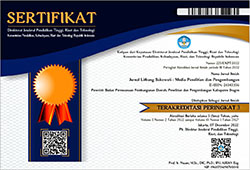IMPLEMENTATION OF THE SMART CITY CONCEPT AS AN ALTERNATIVE FOR SOLVING URBAN PROBLEMS (CASE STUDY: PONOROGO DISTRICT, EAST JAVA)
DOI:
https://doi.org/10.32630/sukowati.v7i2.440Keywords:
Smart City Implementation, Urban Design, Ponorogo RegencyAbstract
The increase in urbanization raises various problems, including public transportation problems, lack of public space, public service centers, green open spaces, and waste management problems. This research aims to identify urban problems and provide solutions from the field of architectural science related to the implementation of the Smart City concept. The research method used is descriptive qualitative to gain an in-depth understanding of the Smart City concept, implemented in urban planning and development practices. The results of this research can be a guide for the Ponorogo Regency Government in planning more targeted long-term policies for the transformation of Ponorogo Regency into a Smart City; the architectural design realized in Smart Mobility is in the form of urban buses, bus stops, bike share points, and smart parking systems. Smart Economy includes micro and medium enterprise buildings and food court shelters. Smart People is in the form of providing an amphitheater. Smart Government comprises centralized public service buildings and urban CCTV monitoring. Smart Living takes the form of building a thematic park. Smart Environment in the form of waste management with waste-to-energy innovation.
Downloads
Published
How to Cite
Issue
Section
License
Copyright (c) 2023 Hilba Yoga Pratama Hilba Yoga Pratama

This work is licensed under a Creative Commons Attribution 4.0 International License.


















